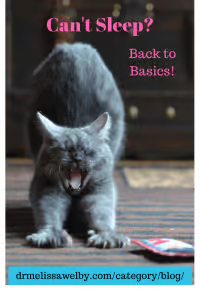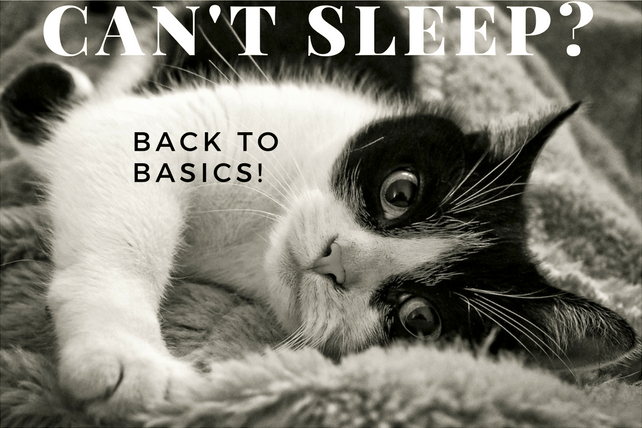Is your sleep suffering? Can’t sleep at all? Let’s talk about sleep problems, some basic information about sleep and sleep hygiene, and how to sleep better. We often don’t make the connection between poor sleep and habits we have that interfere with it. Quality sleep is essential to feeling well. We feel lousy when we have a lack of sleep! Chronic lack of sleep can have medical consequences and make it hard to recover from an illness like depression.
How to Sleep Better: Sleep Hygiene
You may be able to improve sleep by practicing better sleep hygiene. Sleep hygiene is really about getting back to basics: minimizing disruptions while sleeping, maximizing comfort, and identifying things interfering with sleep while adding in things to improve sleep. Here is a link to a great review of sleep hygiene that will help you figure out how to improve your sleep problems.

How many people do you know who drink coffee later in the day or drink alcohol before bed? Read my previous posts on caffeine and alcohol’s effects on sleep to see what happens to sleep when we drink these.
There are often a lot of things we can do on our own to help get a better nights sleep.
Dr. Steph, MD is a sleep specialist and writes all about sleep. She has a post related to sleep hygiene with great recommendations on how to sleep better: 6 Ways to Optimize your Sleep Environment.
It’s not just us adults that can use some help with our sleep. Dr. Kristen Stuppy, pediatrician, writes about sleep-deprived teens. Teens have habits (excessive cell phone use is a big one) and activities (sports, early school hours, lots of homework) that interfere with any chance of getting enough sleep. There are consequences to this sleep deprivation. “Teens are at the highest risk for falling asleep at the wheel”. She includes good sleep hygiene suggestions specifically geared towards this age group.
Sleep Problems and Sleep Cycle
There are different stages of sleep:

Insomnia can involve difficulty falling asleep, difficulty staying asleep, non-restorative sleep or some combination of all of these. We need to get into a deep sleep to feel restored and rested.
There are many medical conditions (think sleep apnea) and substances that can interfere with the sleep cycle. An important part of treating insomnia is figuring out what the source of it is.
Suffering from Lack of Sleep? What are Your Sleep Requirements?
Different people require different amounts of sleep to feel well. I would LOVE it if I felt great with 5 hours of sleep but I just don’t. I know some people who feel their best at 9 hours and lousy at 8. What is your optimum amount? To understand more about your sleep need and the effects of sleep deprivation visit: http://sleepmedicine.com/content.cfm?article=14.
Can’t Sleep? Sleep Debt Happens
 Unfortunately, when we don’t sleep enough we accumulate a SLEEP DEBT! There are a lot of consequences to chronic sleep debt including obesity, diabetes, heart disease, memory impairment, and stroke.
Unfortunately, when we don’t sleep enough we accumulate a SLEEP DEBT! There are a lot of consequences to chronic sleep debt including obesity, diabetes, heart disease, memory impairment, and stroke.
Insulin resistance can be caused by not sleeping enough and is a common reason why people with sleep apnea gain weight. Untreated sleep problems can increase the risk of obesity, insulin resistance, and type 2 diabetes.
Luckily research has shown these changes in our body can be reversed by repaying sleep debt. Here is a great summary which includes suggestions on how to repay your debt.
Evaluating Sleep Problems: Epworth Sleepiness Scale
If you find yourself dragging during the day, the Epworth Sleepiness Scale is a rating scale that can determine your level of sleepiness. If you score 10 or above it is recommended you have an evaluation for a possible sleep disorder or an underlying condition affecting your sleep. Here is a link to take the test.
For other general sleep information, I recommend the Ohio Sleep Medicine Institute which maintains a fantastic website. It includes information on a plethora of sleep topics pertaining to both children and adults. Go check it out and then get to sleep!
Want more information on how to sleep better?
8 Great Options to Treat Insomnia (Without Medication)
Sleep and Aging: What happens to our sleep and how to make it better
I recommend these products and books to help improve your sleep and treat insomnia:
[amazon_link asins=’B00EREC7VA,B00HD0ELFK,B01D50RZQI,0471149047,0399532978,0805089586,1606232940,1401307787′ template=’ProductGrid’ store=’drmelissawelb-20′ marketplace=’US’ link_id=’ca5a6b7c-cf0c-11e7-ab5f-d52df10463af’]



Hi your article was very informative in the case of someone with a tbi does the lower dose recommendation still apply?